Building a bridge for knowledge exchange between KTH researchers and Swedish parliamentarians
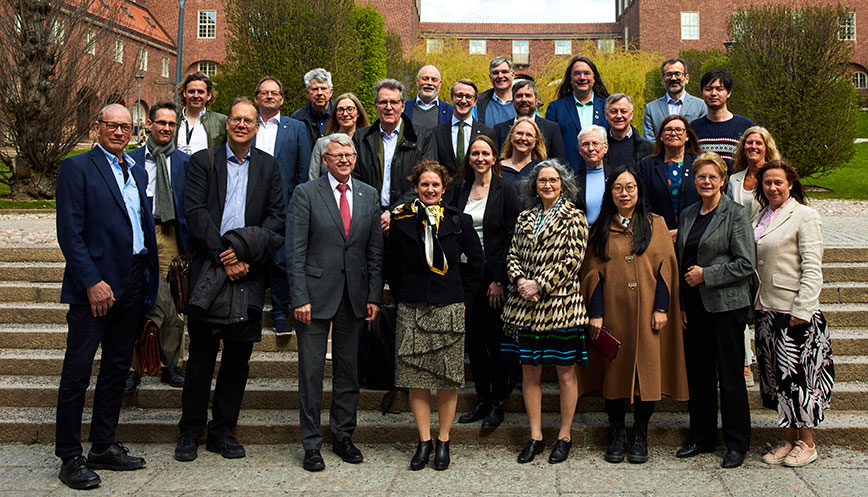
When KTH invited the board of Rifo, the Swedish Society of Parliamentarians and Researchers, on a study visit in May, the event was very well received. Members of the Swedish parliament were given an overview of KTH’s education, research and collaboration with society. The visit concluded with meetings with individual researchers in their labs and research environments.
“It’s always an eye-opener to make a study visit like this. MPs who have heard of fusion research, for example, get the chance to see an actual fusion lab. This creates better understanding and is a great opportunity to acquire more knowledge,” says Barbara Cannon, Professor at Stockholm University, and one of ten researchers on the Rifo board.
Lina Bertling Tjernberg, professor of electric power grids, is Rifo deputy chair.
“It has long been one of my goals to welcome Rifo to KTH, my home university. It’s crucial to create a bridge between MPs and researchers so that together we can shape societal development based on facts and knowledge,” says Bertling Tjernberg.
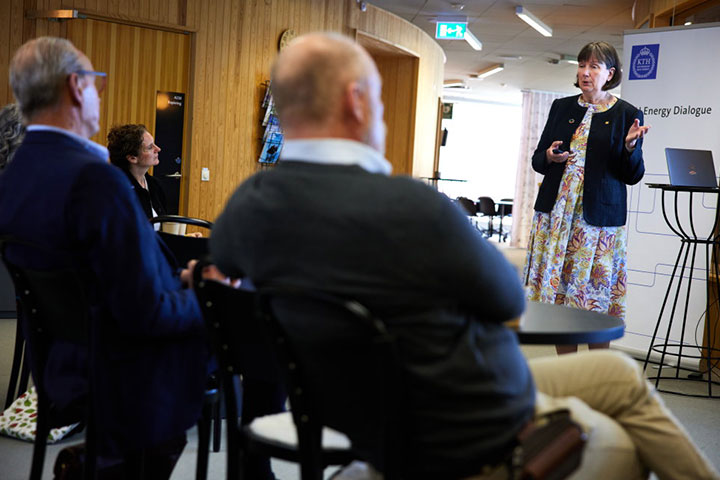
Sustainability tops the agenda
MPs were welcomed by KTH President Sigbritt Karlsson, who made an introductory address. She described KTH’s organisation and structure, and highlighted how its activities rest on the four pillars of gender equality, sustainable development, digitalisation, and internationalisation.
“The UN’s sustainable development goals are fully integrated into our education and research activities,” says Karlsson.
She went on to highlight KTH’s research platforms and opportunities for new cross-cutting collaborations in higher education institutions. Karlsson also spoke about KTH’s collaborations with the surrounding community based on well-developed partnerships with companies and public organisations.
“Collaboration is in our DNA. Our goal is to create societal benefits through collaboration with companies, organisations and public activities. And we’re happy to contribute all our knowledge in [Parliamentary] reviews, committees and meetings,” says Karlsson.
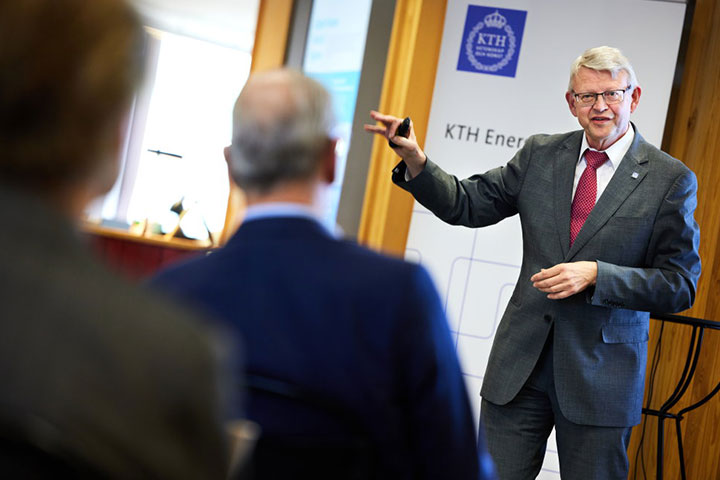
Mikael Östling, professor and Deputy President, provided an insight into KTH’s research infrastructure. In recent years, the university has made a strategic investment to strengthen its most prominent research environments.
“We’re now known for our infrastructure which in many cases is state-of-the-art. And we want it to benefit everyone, researchers and partners and the wider community,” Östling said.
KTH offers excellent lab environments in fields such as energy technology, life science, nanotechnology, medical technology, experimental mechanics, and visualisation. These environments are used by everyone from start-ups to world-leading companies.
“We also take an active role in the largest investments in the local area. Today, KTH researchers are involved in MAX IV, ESS, CERN and Petra III,” says Östling.
Focus on financing
University Director Kerstin Jacobsson also participated in the morning sessions, during which she highlighted the collaboration between the Stockholm trio, which has resulted in a larger network of contacts at EU level. Annika Stensson Trigell, Vice-Rector for Research, described the current status of research funding at KTH. She highlighted the problem of reduced basic funding, which may also result in reduced external funding.
“External financing must increasingly be co-financed, which is done with the help of basic grants. This reduces the scope for open research, which is often the source of major breakthroughs. Ultimately, this poses a threat to Sweden’s long-term development, and also makes it more difficult to recruit top researchers from abroad,” says Stensson Trigell.
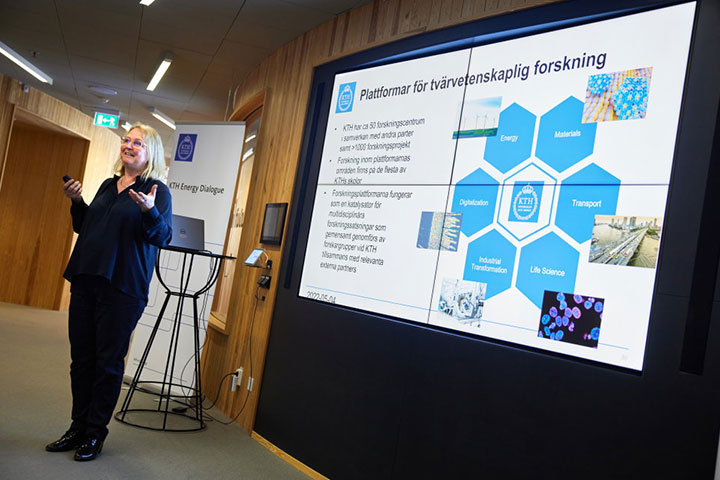
Governance and access to research funding triggered a brief debate with several questions for KTH’s representatives. Fears were expressed that existing governance risks diluting research at larger universities such as KTH, which also have higher costs for technical infrastructure.
Leif Kari, Deputy President of Education, gave a presentation of courses available at KTH. He highlighted investments in lifelong learning and ambitions for broader-based recruitment.
The last member of KTH management to present for Rifo representatives was Johan Blaus, Director Strategic Partnerships and Business Co-operation. He described how today’s partnership programmes complement research platforms and personal contacts. And how the breadth of partners made it easier to understand tomorrow’s societal challenges and to communicate research results.
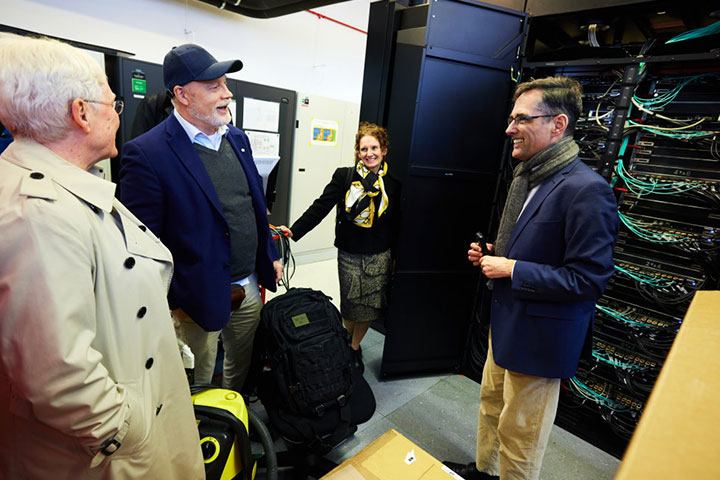
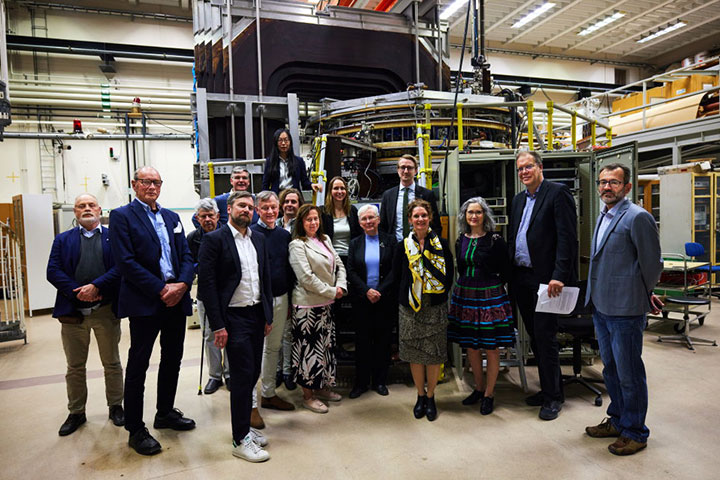
Lab tour
Following lunch together, a tour was made of a number of KTH’s research environments and labs. Lars Pettersson, professor at the Department of Chemical Engineering, provided insights into the processing of biomass for transport and industry. Lorenzo Frassinetti showed KTH’s unique fusion reactor and talked about KTH’s participation in the construction of the ITER fusion reactor in the south of France. At PDC Center for High Performance Computing, Professor Dirk Pleiter showed participants one of Sweden’s very fastest supercomputers, which is now under construction.
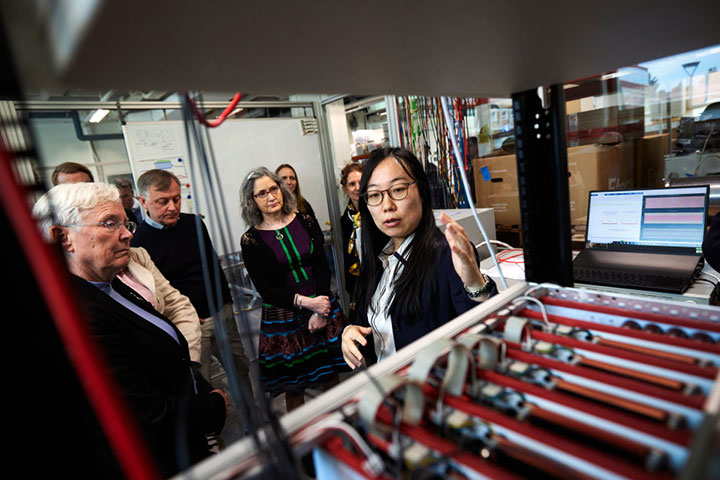
It was then time for a visit to the Division of Electric Power and Energy Systems, hosted by Bertling Tjernberg and Qianwen Xu. They demonstrated the Intelligent Sustainable Grid (ISG) lab, which is used to develop new control and optimisation methods to address control, stability and cyber security challenges. The goal is to pave the way for an increased share of renewable energy in the sustainable power systems of the future. This project is part of the interdisciplinary Digital Futures research centre, which was established at KTH in 2020 in collaboration with Stockholm University and RISE. Digital Futures also provides a meeting place for disseminating research results into society and was therefore also used as the venue for all presentations during the study visit.
The visit concluded at KTH’s cyber security lab where two students spoke about how efforts to test the safety of everyday technologies, such as robotic lawnmowers and electric scooters, will lead to improvements in cyber security in society.
Text: Magnus Trogen Pahlén

